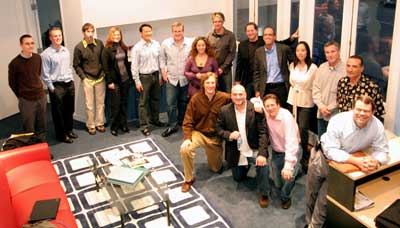Well, my friend Christina convinced me to write my first book, which will be about online advertising.
Why Online Advertising?
Haven’t enough books been written about online advertising? Perhaps, but not in the area I’m writing about.
Over the last 8 months of working on David Shen Ventures, LLC, one of the topics I talk most about is the area of online advertising. It’s an area in which many entrepreneurs have almost no exposure, and yet they talk a lot about putting ads on their sites.
I wish it were as simple as that. Technically, putting ad html tags on your site is pretty easy; orchestrating everything else is a challenge when you have no experience in doing so.
Revenue generation is top of mind for every startup. They want to figure out how to make the most money and advertising is a natural thing to try for every company working on an Internet product. So it has been amusing that almost every startup has contacted me for my user experience and product knowledge, but it quickly morphs to my guidance on online advertising and its implementation on the site and within the company.
For every startup, I found that I talk about exactly the same thing, the same issues, the same stories. And they eat it up because there is no one else to teach them the basics. There is a real need for resources to teach new Internet startups how to do online advertising right and there is not much out there at all.
It was then I realized I should just write all this stuff down and then just give it them in printed form. They can read and digest it, and then we could meet and go into the details, or talk about stuff that would inevitably be left out of the book, or the latest trends in online advertising which shifts all the time based on what is going on with websites and their users.
My other motivation for writing this was to document the history of online advertising at my old company, Yahoo!. As I talk about online advertising to my startups, I cannot help but insert the stories of our struggles with online advertising there. And when I think back to the evolution of online advertising, I cannot help but think how Yahoo! has shaped the industry as a whole due to its heavy involvement in it. It helped drive it through the Internet boom years, rode the downturn, but then helped pull the industry out of its doldrums and helped the advertising world regain confidence in what the Internet could do for them.
I did not want that story to be lost. I wanted to document it once and for all so that everyone can read it and learn from both Yahoo!’s successes and failures, and hopefully not repeat them again. And lastly, I wanted to recognize the women and men whose work made this a journey of discovery and rebirth for my old alma mater, Yahoo!.
But how to start writing this book?
Book 2.0 Beta
The Beta Book
If developers are nervous releasing code, then publishers and authors are terrified of releasing books. Once a book gets committed to paper, it’s seen as a big hairy deal to change it. (It really isn’t, but perception and memories of problems with old technologies still linger in the industry.) So, publishers go to a lot of trouble (and expense) to try to make books “right” before they’re released.
When I wrote the book Agile Web Development With Rails, there was a lot of pent up demand among developers: give us the book now — we want to learn about Rails. But I’d fallen into the mindset of a publisher. “It isn’t ready yet,” I’d say. But pressure from the community and some egging on from David Heinemeier Hansson changed my mind. We released the book in pdf form about 2 months before it was complete. The results were spectacular. Not only did we sell a lot of books, but we got feedback — a lot of feedback. I set up an automated system to capture readers’ comments, and in the end got almost 850 reports or typos, technical errors, and suggestions for new content. Almost all made their way into the final book.
It was a win-win: I got to deliver a much improved paper book, and the community got early access to something they wanted. And if you’re in a competitive race, getting something out earlier helps folks commit to you and not your competition.
– Dave Thomas, The Pragmatic Programmers, from Getting Real by 37signals.com
Over these last few days, I’ve been reading 37signals.com’s book, Getting Real and found this quote in there about publishing in the world of the Web. I realized that it would be a fantastic way to actually get my ideas down in written form and then solicit the world for comments. I could then edit and republish, get comments, and keep doing this until I am done.
So over the next few weeks and months (hopefully not years!), I’ll be posting potential content for the book in my Online Advertising Book category. My hope is that, you, the readership will read these incomplete ramblings and help me by commenting on them and making suggestions, resulting in a stronger product than if I just turned into a hermit for a few months and typed until the book was done. This book will be a true product of the crowd and I hope you will enjoy reading and shaping it as much as I will enjoy writing it and involving you.
Stay tuned!
